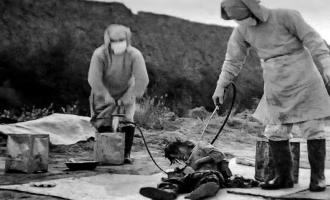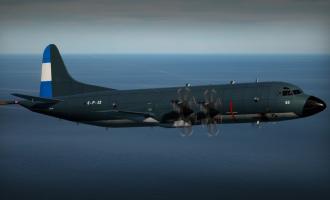Did Pakistani leaders, civil and/or military, know that the country was hiding Osama bin Laden, the world’s most wanted man? And did anyone know of the audacious but well-planned sting operation of the US Navy Seal commandos on May 2, 2011, in which bin Laden was killed, and the attackers escaped into thin air back into neighbouring Afghanistan? Questions persist after ten years, with no answers in sight.
Why was it that the then Army Chief, General Ashfaque Kayani and later President Asif Ali Zardari, ‘congratulated’ and ‘thanked’ the invading Americans who merely informed tem after the mission as completed? Although the Americans had kept the Pakistanis in the dark, the initial response of both was to swear full cooperation and both felt ‘relieved’ that Osama was no more. So, whether they knew or not is important. The world will not know if it was a case of the thief being caught with hand in the till.
More important: When and why did this initial ‘relief’ and ‘thanksgiving’ turned into a mighty public and diplomatic rage and protests were lodged about the violation of air space and “loss of territorial sovereignty”?
Why have these questions remained unanswered and several ways employed to deflect the main issues?
Was anyone held responsible or punished after completion of an inquiry report that carried serious dissenting by one of the members? You get an answer at last: well, none was held responsible and none punished.
The report, like many others in Pakistan’s history, was never published, but leaked out, selectively, to Al Jazeera network, allowing for its deniability. A blow-by-blow account in a just-published book has resurrected, as it were, the Al Qaida leader. A book “No Win War” by veteran Pakistani journalist Zaheed Hussain has a full chapter on how bin Laden was killed along with some family members and his body taken out, along with incriminating evidence of his presence in Pakistan and activities when alive.
Although it does not answer many of the questions above, the book is a strong recall of what had happened, and how Pakistani public was informed. The obvious compulsion was that the US, and none less than the then President Barrack Obama, officially announced it to the world. Obama took care to praise Pakistan for its ‘cooperation’ but also let it be known that the US did not trust the Pakistanis and take them into confidence. The unstated part was that once taken into confidence about bin Laden’s presence and location, he could have been made to disappear, probably into the wild tribal areas where even Pakistan Army’s writ does not easily run. The US couldn’t have risked a failure, what with presidential elections close by that Obama had to win. Later events show that many, including the present President, Joe Biden, were opposed to taking that risk.
While the operation’s success spelt “V for victory” for Obama and the US, the Pakistanis were left red-faced. They were told that the action had taken place a decade back, not in some remote no-man’s tribal region on border with Afghanistan, but in the heart of Abbottabad, the high-security garrison town and home to a prestigious army school. The Pakistanis are still left with rumours and conjectures about the role of their politicians and the military.
In his memoirs published last November, Obama has said a lot, yet not confirmed whether Pakistan Government knew of Osama bin Laden’s presence and whether the army and the civilian government was aware of it. He has remained ‘responsible’, not saying anything that would embarrass the US government in general.
But like his predecessors, Bill Clinton and later George Bush Junior who coaxed General Pervez Musharraf into joining the “global war on terror” in Afghanistan following the 9/11, Obama has revealed his poor opinion about the Pakistan and the Pakistan Army. He wrote that he had ruled out involving Pakistan in the raid on bin Laden’s hideout because it was an “open secret” that “certain elements inside Pakistan’s military, and especially its intelligence services,” maintained links with the Taliban and perhaps even the Al-Qaida, sometimes using them as strategic assets against Afghanistan and India.
Damning the Pakistan leadership of that time, Obama has also clearly stated in the book that if the operation to kill Osama was reported to Pakistan in 2011, this mission would have failed. "The fact that the Abbottabad compound was just a few miles from the Pakistan military's equivalent of West Point only heightened the possibility that anything we told the Pakistanis could end up tipping off our target," Obama wrote. Also that bin Laden was buried at sea to avoid "the creation of a pilgrimage site for jihadists."
The entire operation had global repercussions and dented Pakistan’s international reputation — exposing contradictions in a country that has long served as a rear base for Al Qaeda and its Taliban allies while suffering from the effects of terrorism. The raid caught Pakistan between a rock and a hard place. Officials could deny knowing he was there — but in doing so they would effectively be admitting to a shocking intelligence failure.
Hussain’s book narrates how Kayani and his ISI chief, Gen. Pasha were “worried and tense” at the way things had happened because questions began to be asked by fellow-officers. They needed to be addressed and sought to be convinced. Kayani travelled from one garrison to another talking officers who on many occasions conveyed their anger and disbelief. At one such meeting, Hussain writes, a “chain-smoking and nervous” Kayani “cried out” that he had felt ‘betrayed’ by the Americans who went public and took all the credit, while leaving the Pakistanis to pick up the dirt.
For the world, any impression that Pakistan’s military was mortified and would correct the situation was misleading. Political and media management began. The civilian leaders were blamed and painted in purple colours for their ‘failure’.
One repercussion was on President Zardari himself. Afraid that the army might go after him, the way Musharraf had gone after Nawaz Sharif after the failure of the Kargil operations against India, Zardari allegedly sent a ‘memo’ to top American official, Admiral Mike Mullen. The ‘memo’ was submitted by Hussein Haqqani, the Zardari-appointed ambassador to Washington. It came to called “Memogate”. While Zardari, who laid low thereafter and escaped any harm, Haqqani was dismissed and sought to be punished on return. He has never returned to Pakistan.
As it generally happens in Pakistan, a wave of anti-American sentiment blew for long, fanned by the military and the mullahs. With rebound, Osama became an object of reverence.
Nothing much has changed in the last ten years. Prime Minister Iman Khan called Osama “a martyr” in the National Assembly last August, even as he said that his location on Pakistani territory and his killing had caused “humiliation” for Pakistan. What has also not changed is the fact that the army has tightened its stranglehold on the country’s polity since May 2011. Like it had done after losing half the country in 1971, all blame was left at the door of the political class that remains more subservient to the military.















